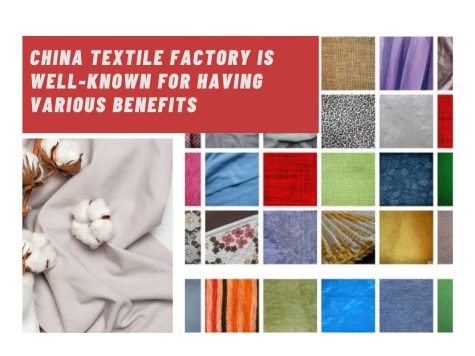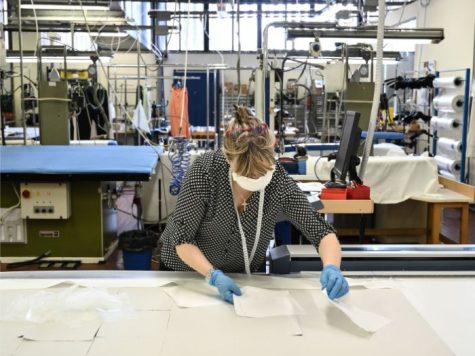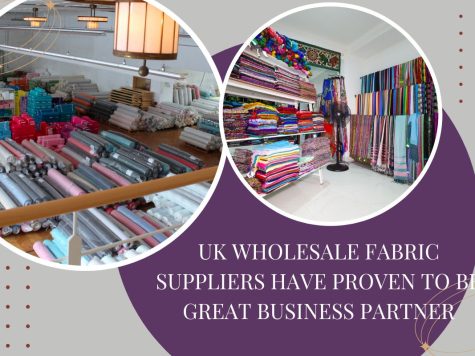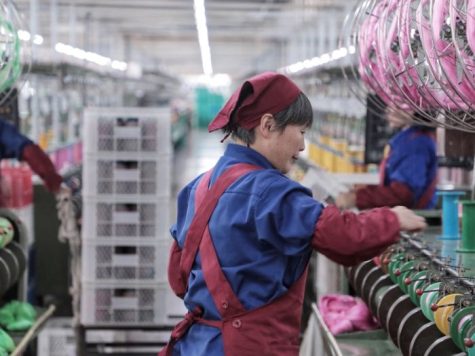In the heart of Europe, a tapestry of textile manufacturers weaves together tradition and a deep commitment to excellence. This blog post unveils the remarkable world of European textile manufacturers, shedding light on the advantages of partnering with these industry titans.
Mục Lục
1. European textile manufacturers overview
The European textile industry has historically played a significant role in the worldwide textile scene. Its significance stems from a rich heritage of workmanship, artistic expression, and innovation that has come to be associated with its manufacturing traditions. European textile manufacturers have played a vital role in influencing the course of the global textile sector for centuries, a position they continue to embrace to this day.
- In recent years, European textile manufacturers have faced significant challenges due to increased competition from more cost-effective alternatives in other countries. This dynamic has forced numerous factories to close their doors or relocate to more cost-effective labor markets. Nonetheless, a resilient group of enterprises remains committed to European manufacturing, focused unwaveringly on developing premium products and adopting sustainable production methods.
- One prominent recent trend has been the emphasis on sustainability in textile manufacturing. As consumers become more aware of the environmental consequences of their purchases, the demand for eco-friendly items increases. European textile manufacturers have responded quickly to changing customer sentiment by adding eco-conscious production practices and obtaining materials from sustainable sources.
- The impact of technology on the textile sector has also left an everlasting effect. Automation and digitalization breakthroughs have enabled European textile industries to streamline processes and save costs. Furthermore, the emergence of novel materials, such as smart textiles and 3D printing, has created exciting opportunities for innovation and customized solutions.
To summarize, European textile manufacturers are critical in the global textile industry. Their persistent culture of quality, originality, and invention has consistently placed Europe at the forefront of developing sustainable, premium textiles and manufacturing technologies. As the industry evolves and expands, European textile producers are well-positioned to lead the charge, determining the industry’s future via their unrelenting dedication to quality and sustainability.
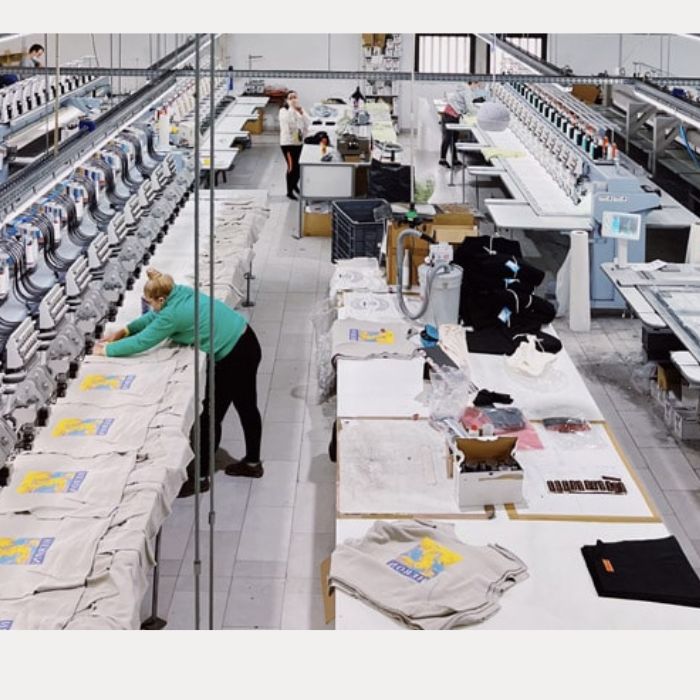
European textile manufacturers overview
2. The advantages and difficulties of working with European textile manufacturers
Navigating the intricate landscape of European textile manufacturers brings forth a tapestry of advantages and challenges, each woven into the fabric of this dynamic industry.
2.1. Advantages of collaborating with European textile manufacturers
Entering the world of European textile manufacturers opens doors to a realm where quality, innovation, and sustainability converge to shape an industry of unparalleled excellence.
- Quality and Craftsmanship: European textile manufacturers are renowned because of their dedication to quality and craftsmanship. They often uphold rigorous standards in fabric production, resulting in high-quality products that meet or exceed industry benchmarks.
- Innovation: Europe has a long history of textile innovation. European textile manufacturers frequently invest in research and development, pioneering new materials and manufacturing techniques that can enhance the appeal and functionality of textile products.
- Sustainability: European textile manufacturers have been proactive in adopting sustainable practices. Many prioritize environmentally friendly manufacturing methods, utilize sustainable materials, and adhere to strict environmental regulations, appealing to environmentally conscious consumers.
- Market Proximity: Shipping times and costs can be reduced for European textile manufacturers for businesses operating in or catering to European markets, ensuring more timely and supply chain management that is efficient.
- Cultural Diversity: Europe’s diverse cultural landscape often results in various textile styles and designs. This diversity can be advantageous for businesses seeking unique or customized textile products.
Incorporating the strengths of European textile manufacturers into your business endeavors not only enhances product quality and market appeal but also aligns your brand with a legacy of craftsmanship and environmental responsibility, ensuring a path to sustained success in the textile sector.
2.2. Challenges when working with European textile manufacturers
While partnering with European textile manufacturers offers a spectrum of opportunities, it’s equally important to acknowledge and address the nuanced challenges accompanying this endeavor.
- Cost: Labor and operational costs in Europe can be relatively high compared to overseas alternatives. This can impact the overall cost-effectiveness of sourcing from European textile manufacturers.
- Competition: Europe hosts a competitive textile market. Finding available manufacturing slots and securing favorable terms may be more challenging due to high demand.
- Regulatory Compliance: European textile manufacturers must adhere to stringent regulatory standards. Navigating these regulations and ensuring compliance can be complex and time-consuming.
- Lead Times: The time frames for production and delivery from European textile manufacturers may sometimes align with tight production schedules, potentially affecting timely product releases.
- Capacity Limitations: Some European textile manufacturers, particularly smaller businesses, may need more production capacity. This can be a constraint for large-scale production projects.
In conclusion, understanding and effectively navigating the challenges of working with European textile manufacturers can be instrumental in forging successful collaborations, and ultimately realizing your business goals and aspirations within this vibrant industry.
See more:
Italy textile manufacturers’ excellence in the fashion industry
China textile factory is well-known for having various benefits
3. How to locate trustworthy European textile manufacturers
Finding trustworthy European textile manufacturers is crucial for businesses looking to source textiles or partner with European manufacturers. Here are some steps to help you locate reliable manufacturers:
- Online Research: Start by conducting online research. Use search engines, industry-specific websites, and business directories to compile a list of European textile manufacturers.
- Industry Associations: Explore industry associations and organizations related to textiles in Europe. They often have directories or lists of reputable manufacturers who are association members.
- Online Sourcing Platforms: Utilize online sourcing platforms and marketplaces that connect buyers with suppliers. Platforms like Alibaba or Thomasnet may have listings of European textile manufacturers.
- Business Directories: Look into business directories such as Kompass, Yellow Pages, or local European directories that provide information about regional European textile manufacturers.
- Networking: Attend industry-specific events, conferences, and networking gatherings. Building connections with professionals in the textile industry can lead to valuable recommendations and insights.
- Consult Industry Experts: Seek advice and recommendations from industry experts, consultants, or trade organizations specializing in textiles. They often have valuable insights into trustworthy European textile manufacturers.
- Check References and Reviews: Ask for references from other businesses that have worked with European textile manufacturers. Additionally, read reviews and testimonials to gauge the satisfaction of previous clients.
- Visit Manufacturing Facilities: Please arrange visits to the manufacturing facilities of potential European textile manufacturers. This firsthand experience can provide valuable insights into their production processes and quality control.
- Verify Credentials: Ensure that the European textile manufacturers you consider are properly registered, certified, and compliant with European regulations and industry standards.
- Request Samples and Quotes: Contact potential European textile manufacturers and request samples of their products. Also, ask for price quotes and compare them to assess cost-effectiveness.
- Assess Communication and Transparency: Evaluate how responsive and transparent the European textile manufacturers are in their communication. Reliable manufacturers should be willing to provide detailed information about their processes and capabilities.
- Quality Assurance and Sustainability: Find out about their quality assurance practices and commitment to sustainability. Understanding their eco-friendly initiatives and adherence to quality standards is essential.
- Consider Location: Take into account the location of the European textile manufacturers. Consider factors like proximity to markets, logistics, and transportation costs.
By following these steps and conducting diligent research, you can increase your chances of finding trustworthy European textile manufacturers who align with your specific sourcing or partnership requirements.
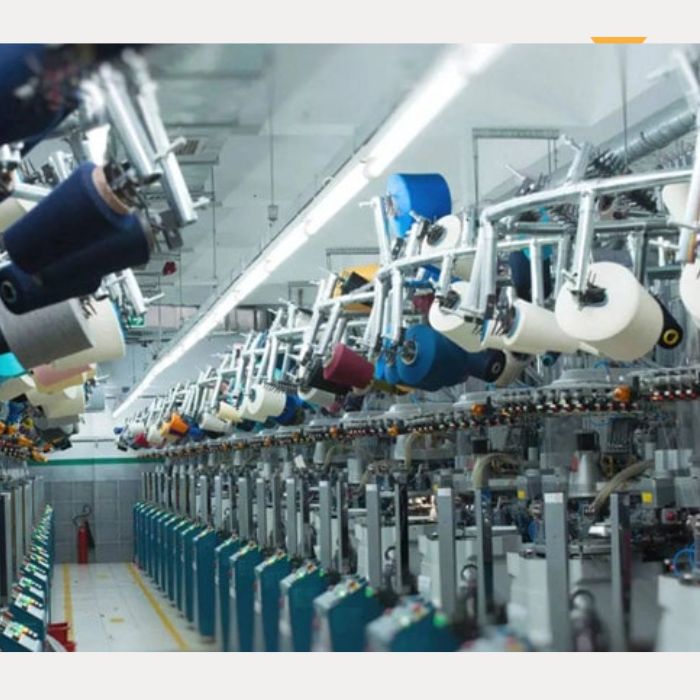
How to locate trustworthy European textile manufacturers
4. Dealing with European textile manufacturers
Dealing with European textile manufacturers involves several key considerations and best practices to ensure a successful partnership.
- Define Your Requirements: Begin by clearly defining your specific requirements, including the type of textiles, quality standards, quantities, and delivery schedules. Having a well-defined plan is crucial for effective communication with European textile manufacturers.
- Research Potential Manufacturers: Conduct thorough research to identify potential European textile manufacturers. Utilize online resources, industry directories, trade shows, and networking to create a shortlist of candidates.
- Reach Out and Initiate Contact: Contact the European textile manufacturers on your shortlist and initiate communication. In your initial contact, introduce your company, outline your requirements, and inquire about their capabilities and services.
- Request Samples and Quotes: Obtain samples of their textile products to evaluate quality and appropriateness for your requirements. Simultaneously, ask for detailed price quotes, including production costs, shipping fees, and additional charges.
- Evaluate Quality and Compliance: Assess the quality of the samples provided and ensure they meet your standards and specifications. Additionally, inquire about the European textile manufacturers’ compliance with industry standards and certifications.
- Negotiate Terms and Contracts: Once you are satisfied with a European textile manufacturer’s capabilities and product quality, negotiate the terms of the partnership. This includes pricing, payment terms, lead times, and other relevant contractual details.
- Establish a Trial Period: To mitigate risk, consider starting with a trial production run before committing to a long-term partnership. This trial period can help both parties assess compatibility and performance.
- Monitor Quality Control: Implement a robust quality control process to ensure the textiles meet your specified standards. Regular inspections and testing help maintain consistent quality.
- Consider Logistics and Shipping: Plan logistics and shipping arrangements, including lead times and transportation methods. Ensure that you have a clear understanding of delivery schedules and associated costs.
Dealing with European textile manufacturers requires thorough research, practical communication, and a dedication to quality. Following these steps and maintaining a proactive approach can establish successful partnerships that benefit your business and meet your textile sourcing needs.
5. Vinaz Garment: A viable option for European textile manufacturers
Vinaz Garment, a leading textile manufacturers in Vietnam, emerges as a compelling and viable option for European textile manufacturers seeking reliable partnerships and sourcing solutions. Their commitment to quality, sustainability, and innovation sets the stage for a potential collaboration that can shape the future of your textile endeavors in Europe and beyond.


